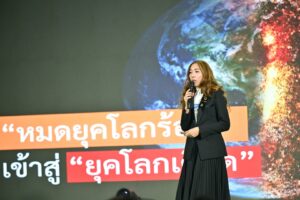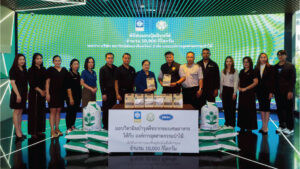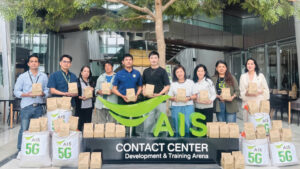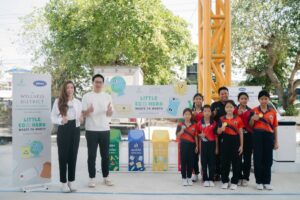
The “Sapling Planting Project” nourished with fertilizer made from food waste from the Bangsaen Series event.
The “Sapling Planting Project” nourished with fertilizer made from food waste from the Bangsaen Series event.
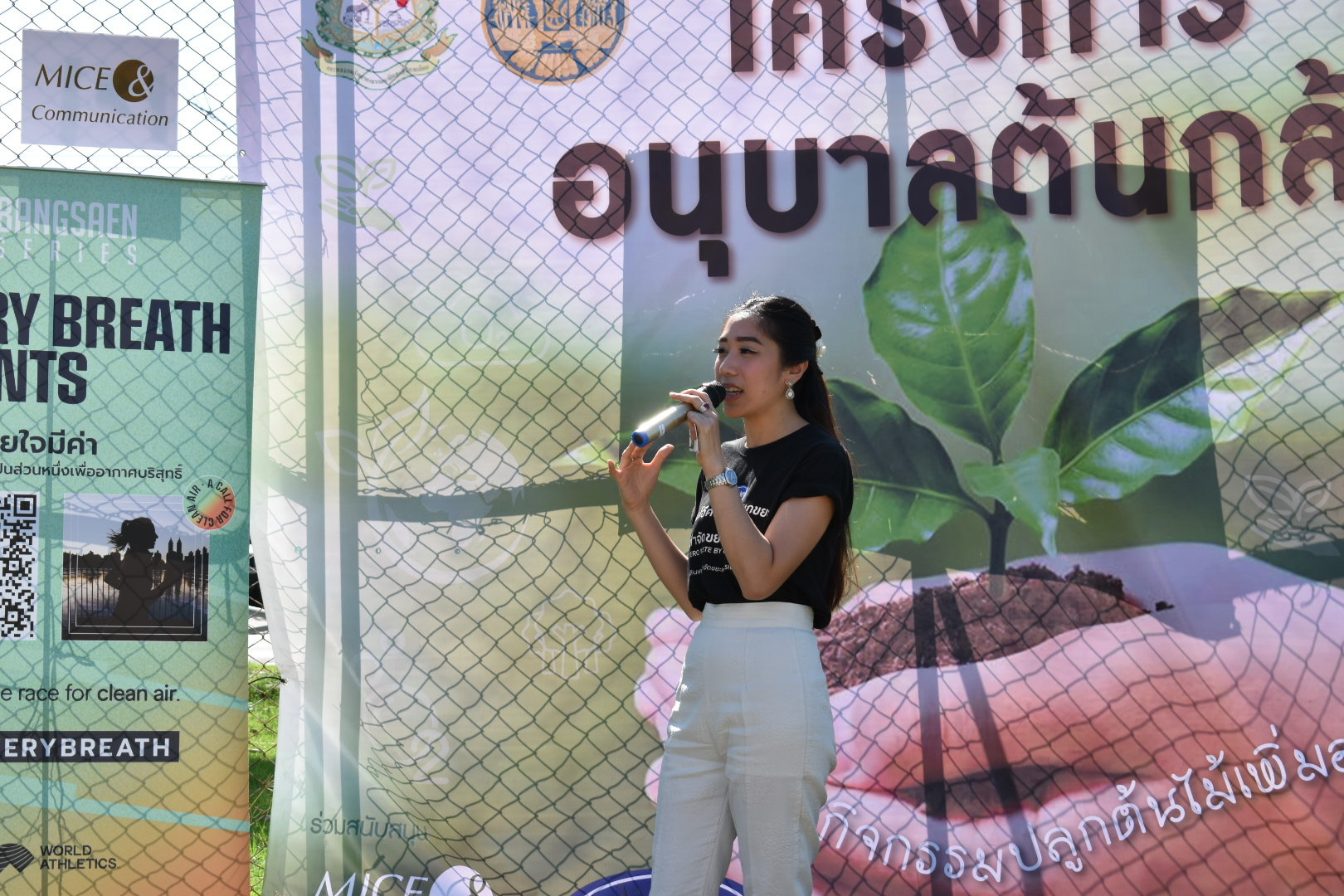
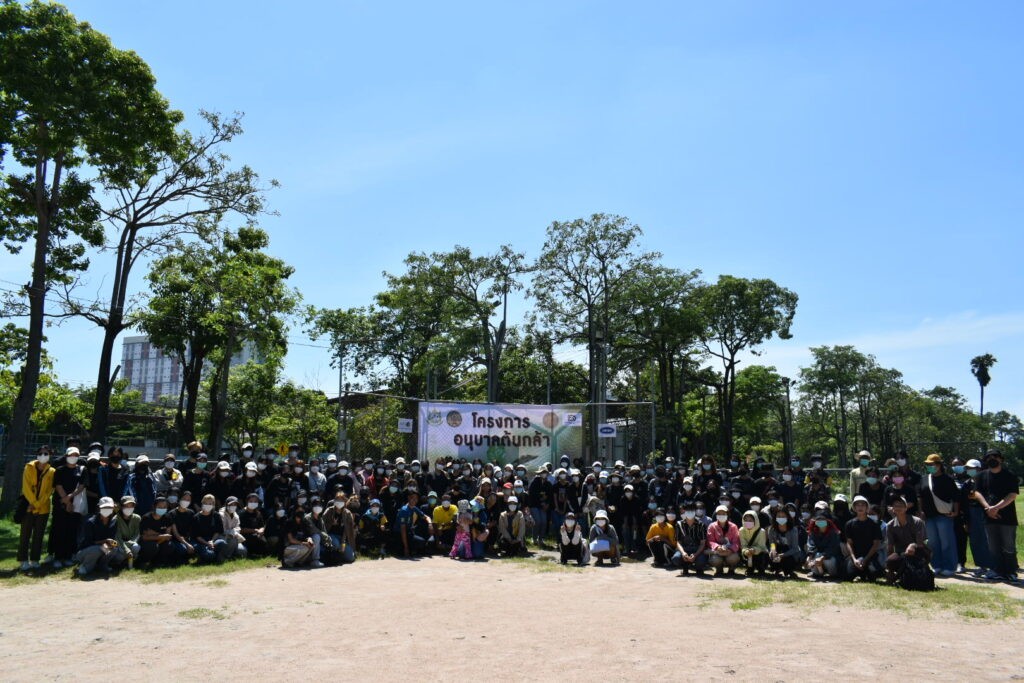
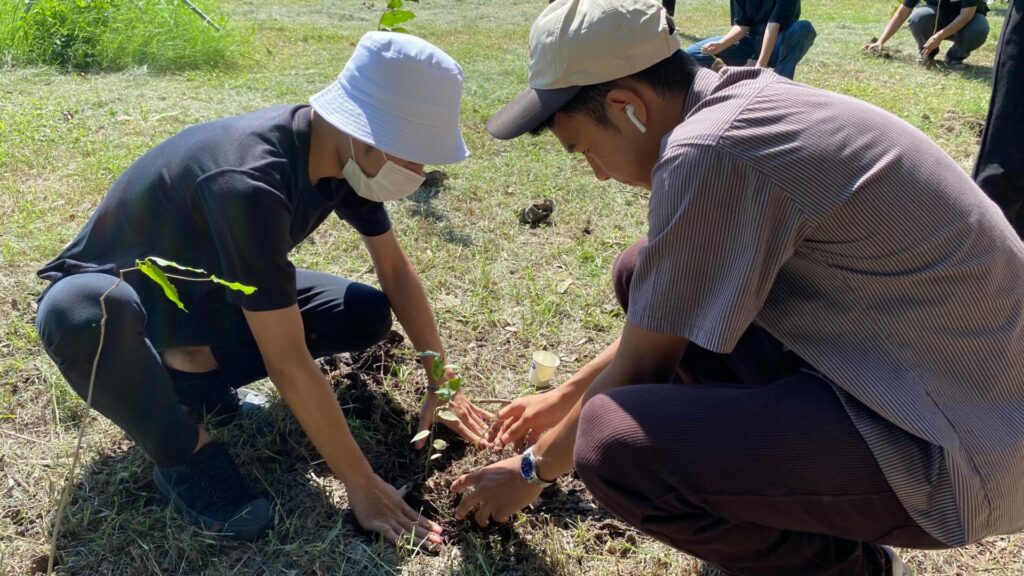
Seedling Planting Project Enriched with Fertilizer from Food Waste at the Bangsaen Series
The recent Bangsaen Series running events offered more than just a platform for fitness and community engagement—they also integrated environmental sustainability through the Seedling Planting Project, which used fertilizer made from food waste collected during the events. This initiative was a collaboration between students and staff from Burapha University, the Ministry of Natural Resources and Environment, MICE & Communication Co., Ltd., and partners from the Bangsaen Series (Park-Run, Oklin).
The event featured an educational session on integrated farming that mimics nature, presented by a representative from the Ministry of Natural Resources and Environment. The talk also highlighted the role of organic fertilizer derived from food waste collected during the races—turning post-consumption leftovers into valuable soil nutrients.
According to the project data:
After BS10-2022, 16.15 kg of fertilizer was produced from food waste.
From BS21-2021 and BS42-2021 earlier in the year, a total of 13.5 kg of fertilizer was produced.
In total, all three races generated 29.6 kg of organic fertilizer.
This fertilizer was used to nourish the seedlings planted as part of the project, helping to create green spaces and enrich the soil. The initiative not only reduced food waste at the running events but also served as a practical example of the Circular Economy, ensuring resources are reused to their fullest potential.
The project demonstrates that running events can be more than just fitness activities—they can also serve as platforms for promoting environmental awareness, fostering community participation, and contributing to long-term nature conservation.
OKLIN – Eco-Friendly Food Waste Composter
Turns food waste into dry fertilizer within 24 hours. It handles liquids without the need for separation, requires only a one-time microbial starter with no refills for its entire lifespan, and uses natural microbial decomposition that is safe for the environment. The process produces ready-to-use organic fertilizer and requires no filter changes, reducing hazardous waste. An Australian innovation, it is easy to use for both households and industrial applications.
Household model: 79,000 THB
Industrial model: Free site survey and waste volume assessment
Contact Line: @oklinthailand

